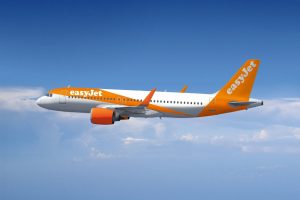Aviation sector grows GDP contribution to £52bn

THE UK aviation sector’s contribution to the country’s overall GDP is worth almost £52bn, according to a new study. In addition, the sector supports 960,000 jobs and is responsible for £8.7bn flowing into the Treasury through taxation.
The study, commissioned by leading players from the aviation and tourism sectors, indicates a rise in all three elements.
The report, published at the Annual Conference & Exhibition of the Airport Operators Association, the trade body for UK airports, brings together data for airlines, airports and other ground-based infrastructure and aerospace manufacturing. It shows that aviation provides substantial economic benefits to the UK economy and its citizens, some of which are unique and essential to the operation of a modern economy.
The study, carried out by the respected consultancy, Oxford Economics, shows the aviation sector’s contribution to GDP is £51.966nm, which equates to 3.4% of the whole UK economy, with the largest single contribution coming from airports and ground services, closely followed by aerospace and then airlines.
Its contribution to UK employment is 961,000 jobs (3.3% of the UK total), with airports and ground services contributing 433,000 jobs, aerospace 327,000 jobs and airlines 200,000 jobs.
The aviation sector’s direct tax contribution (excluding corporation tax) is £8.683bn.
Those figures, based on statistics from 2012, show a considerable rise on those of 2009 – just as the recession was beginning to bite. The 2009 data shows a contribution to GDP of £49.6bn, with jobs at 921,000 and to direct taxation of £7.9bn.
Commenting on the report, AOA chief executive, Darren Caplan, said: “These figures underline once more just how important a growing aviation sector is to the performance of the UK economy.
“Our sector is a significant asset to UK plc, whether you measure the contribution in terms of GDP, jobs or overall tax-take. Add to that the part that it plays in helping other sections of the economy to grow and in connecting UK companies to new and exciting markets at home and overseas and it is easy to see that aviation is a major force for good that can be relied on to play a growing role in the economic recovery.”
He said the report also offered a warning to those who wished to restrain aviation.
“We understand that we have a responsibility to grow sustainably and we are working hard to provide a cleaner, quieter and smarter offering through reducing carbon and noise emissions and developing game-changing technologies such as sustainable aviation fuels,” he said.
“Given how crucial aviation is to UK plc, we believe that politicians should support our sector by: promoting and implementing the 2013 Aviation Policy Framework, to encourage sustainable airport growth throughout the UK; taking the long-awaited decision to expand runway capacity, by acting on the recommendations of Sir Howard Davies’ Airports Commission when it reports next summer; and reducing the UK’s current eye-wateringly high levels of Air Passenger Duty, which not only hurts passengers but also harms our connectivity.”
Nathan Stower, chief executive of the British Air Transport Association, the trade body for UK airlines, said: “The UK is lucky to have such a competitive, dynamic and vibrant airline sector – offering choice and value to the travelling public and businesses alike. This report clearly illustrates the importance of the UK airline industry and the crucial role it plays in supporting economic growth and jobs, delivering mail and goods, linking friends and families around the world and allowing people to take holidays.”









